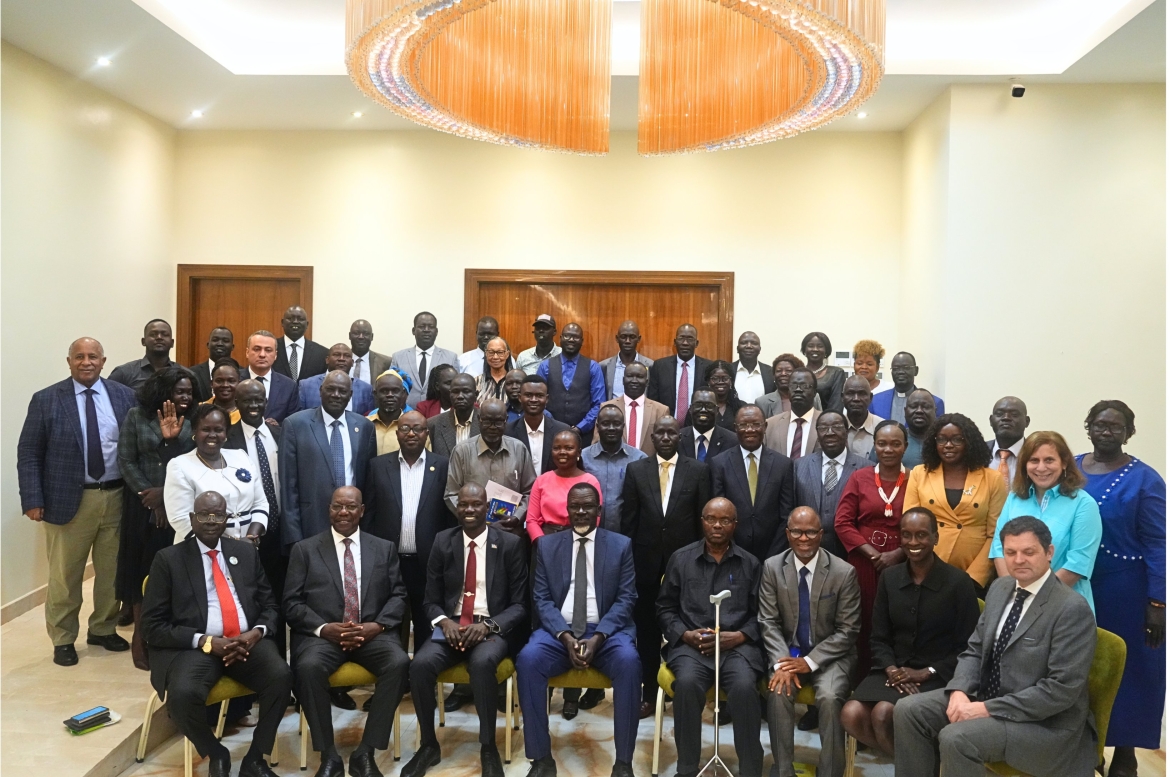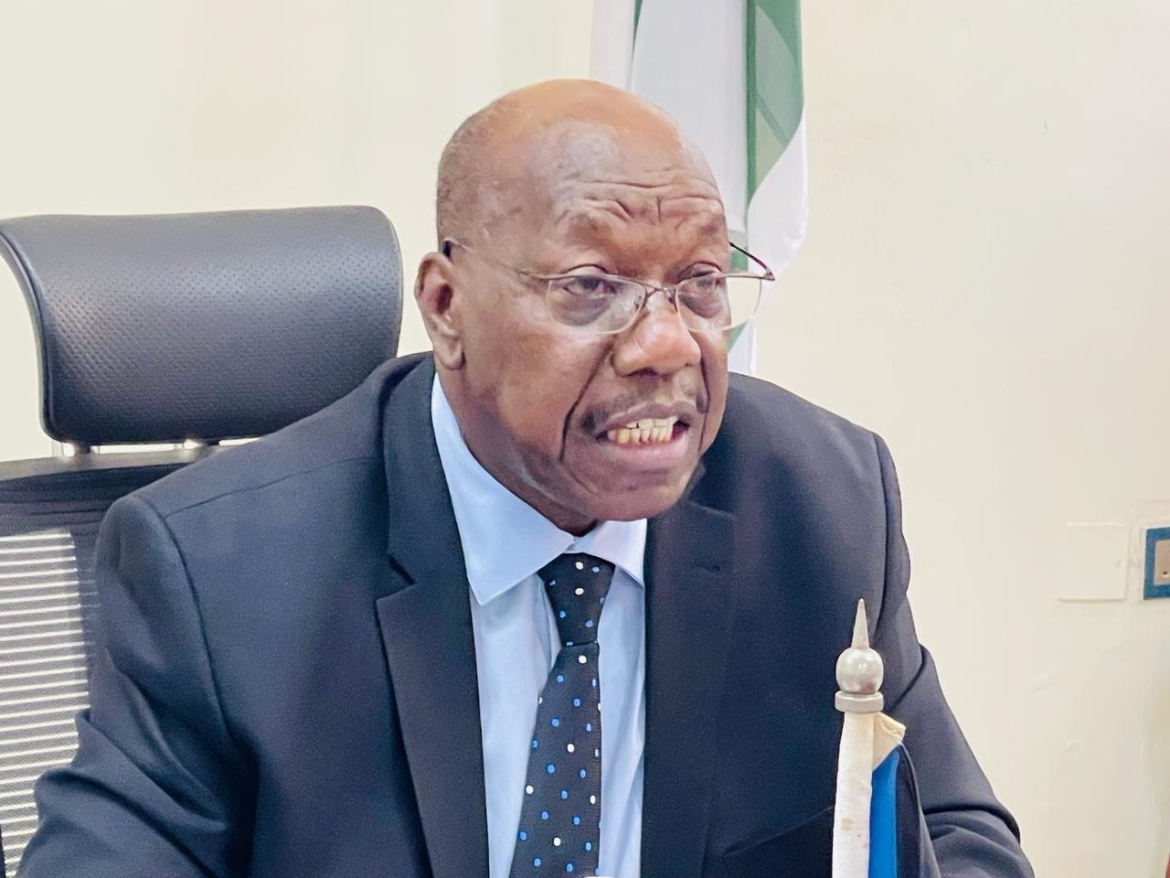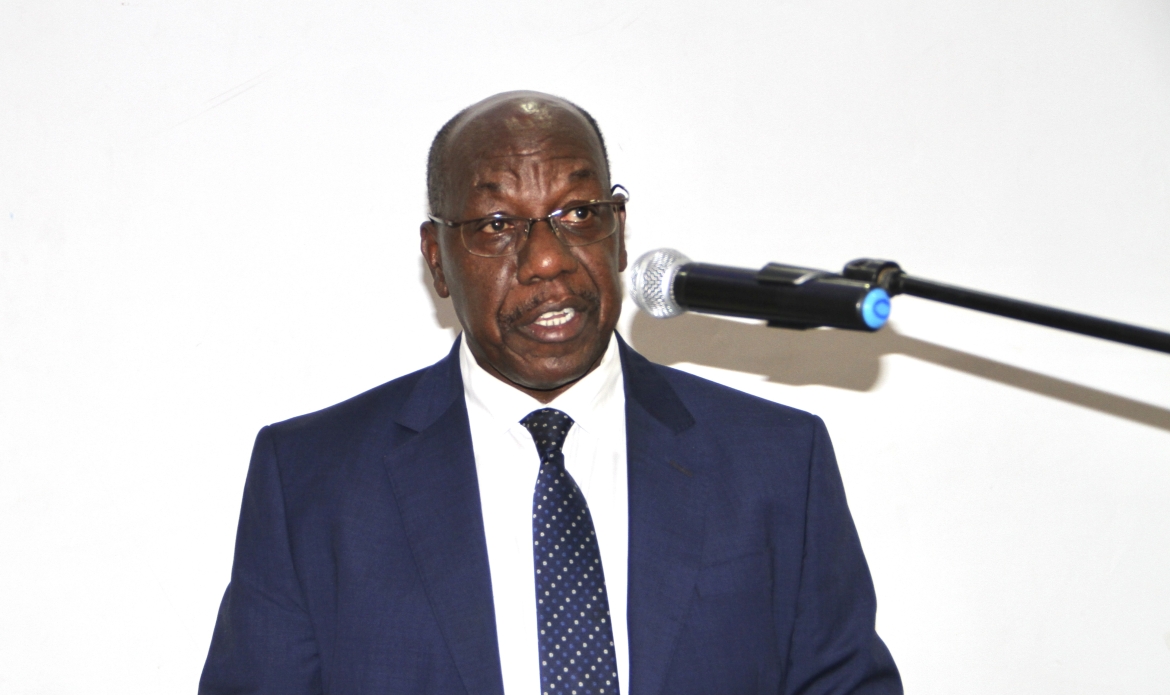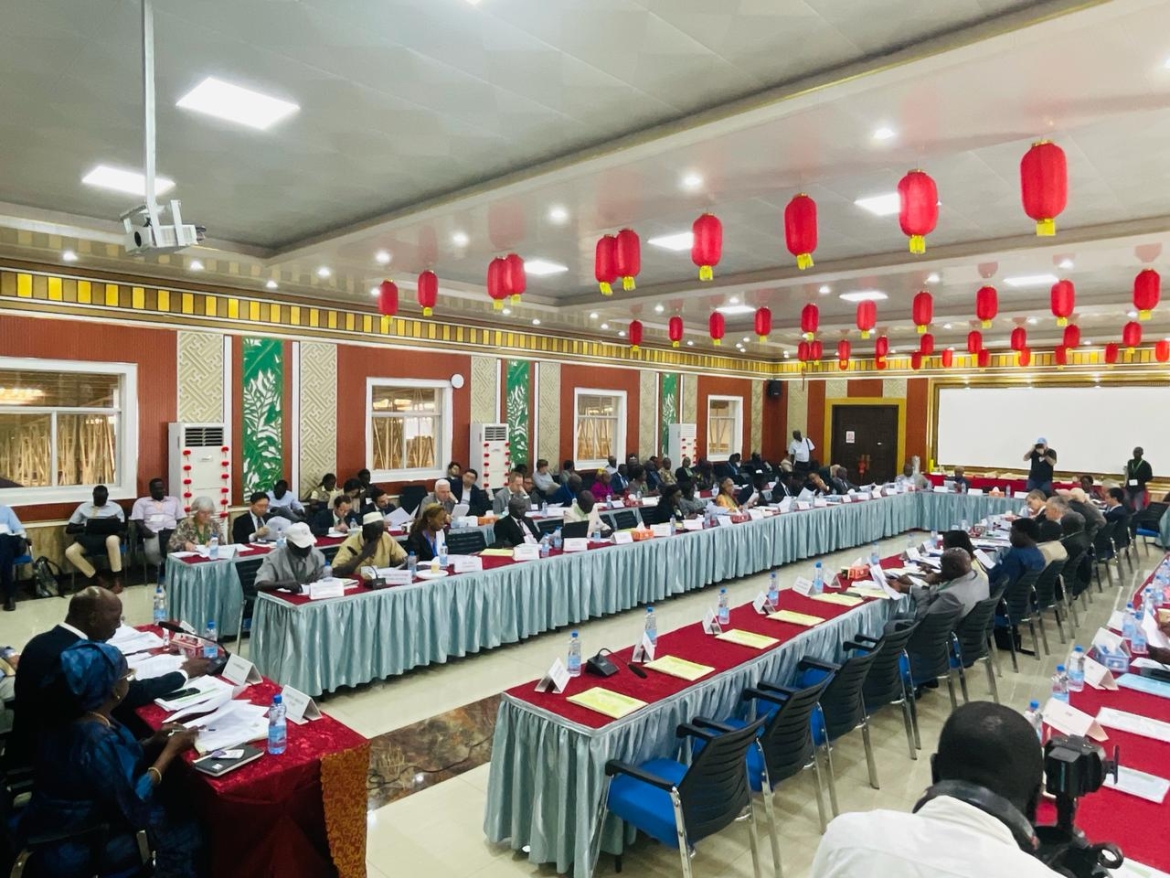Permanent Constitution key for lasting stability, a peaceful transition, good governance-RJMEC
 RJMEC Chairperson Amb. Maj. Gen. Charles Tai Gituai (2nd from left, seated) poses with invited dignitaries and RNCRC Commissioners
RJMEC Chairperson Amb. Maj. Gen. Charles Tai Gituai (2nd from left, seated) poses with invited dignitaries and RNCRC Commissioners
The Chairperson of the Reconstituted Joint Monitoring and Evaluation Commission (RJMEC) on Monday 22 January 2024 addressed the opening of an induction workshop for the members of the newly reconstituted National Constitutional Review Commission (RNCRC).
In his statement, RJMEC Chairperson, Amb. Maj. Gen. Charles Tai Gituai underlined the critical importance of the permanent constitution under the Revitalised Peace Agreement in “anchoring lasting stability, a peaceful transition and good governance.”
He continued: “There is no doubt that the Permanent Constitution, when made in an inclusive and participatory manner, will go a long way in addressing all the root causes of conflicts in this country.”
As such, Amb. Gituai added, “I would like to first congratulate all of you upon being entrusted with this enormous and consequential responsibility,” and appealed to the Commission “to live up to its expectations” and discharge its mandate as per the Revitalised Peace Agreement, and the Permanent Constitution Making Process Act 2022.
The RJMEC Chair continued: “It is critical to note that going by the roadmap timelines, we are far behind schedule and therefore time is of the essence. The RNCRC is expected to get up and running without any further delays,” he said.
In his address, Amb. Gituai called on the Commission to “swiftly consider and adopt practical rules of procedure, endorse the draft budget, and action plan, as well as agree on a practical strategy to immediately commence civic education and robust public consultation campaigns, to promote public debate and awareness on critical constitutional issues.”
The constitution making process is crucial given that the provisions of the Permanent Constitution are expected to guide the conduct of elections at the end of the Transitional Period in December 2024.




